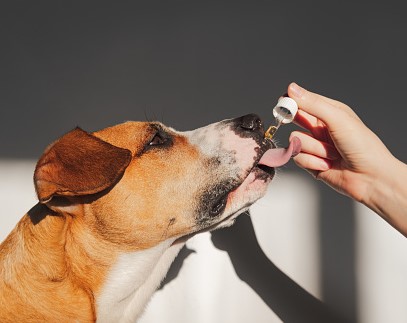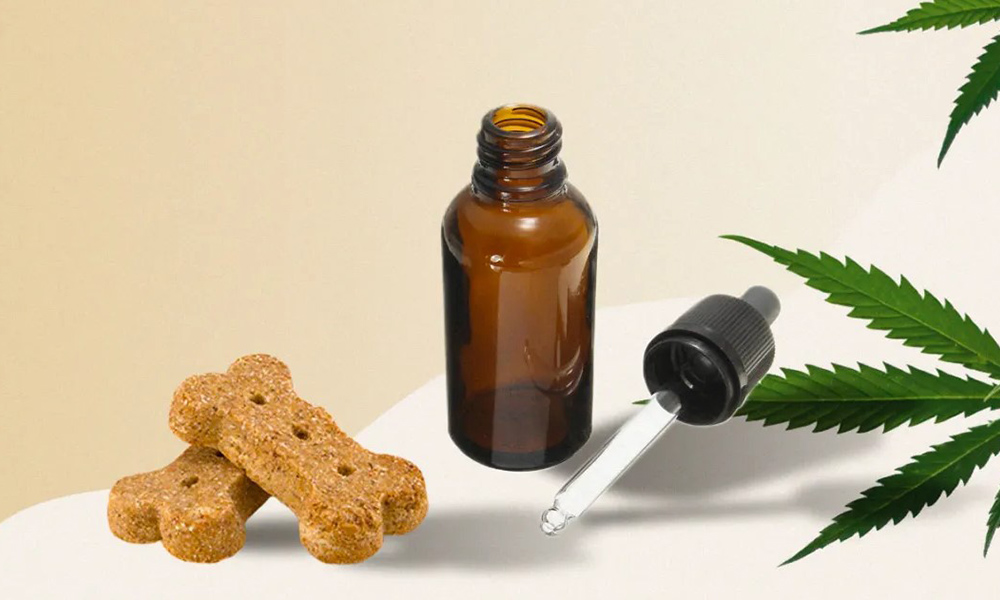Non classé
CBD Treatibles for Your Pet
Cannabidiol (CBD) goods are becoming increasingly popular among people and animals. With the use of CBD on the rise, pet owners and veterinarians alike are asking if it could be a viable alternative for a variety of pet health issues. Early investigations are encouraging, but working with a veterinarian who is familiar with CBD therapies if you wish to give them a go for your dog is suggested.
It’s time to learn about current CBD research, whether it is safe for dogs to consume, and whether it might be the finest alternative for your dog now that you’ve discovered the benefits and drawbacks of CBD in dogs.

What is CBD?
The primary active components in marijuana are delta-9-tetrahydrocannabinol (THC) and cannabidiol (CBD). When people smoke marijuana, the chemical THC makes them feel high. CBD, on the other hand, does not cause a “high” and appears to have a variety of health advantages.
Although CBD products are only legal in a few states, people throughout the United States may purchase them both in shops and online.
Although CBD is legal in certain states, it is not permissible in food services under the same federal laws that apply to cannabis. However, because CBD has not been classified as a drug by the FDA, its usage as a food additive, dietary supplement, or therapy for animals is still unclear. Although one FDA-approved human medicine incorporates CBD, no pet medications made from CBD have yet been authorized by the FDA.
What kind of research has been done on the effects of CBD in pets?
Unfortunately, there is little information about CBD administration in dogs. Veterinary professionals’ professional experiences are presently followed or drawn from very small research projects. The steady rise in popularity and usage of CBD in pets has resulted in an expanding number and size of these studies, both for veterinarians and pet parents, providing them more information on how to apply CBD effectively.
Is CBD safe for pets?
Because the Food and Drug Administration (FDA) does not recognize any prescription or over-the-counter cannabidiol (CBD) products for use in animals, the items on the market may not have been tested for safety or efficacy. Some businesses could also make unverified medical claims about their goods without being evaluated or authorized.
There are also problems with the quality of CBD products. The product may have a different amount of CBD than was stated, or it may be tainted by THC or pesticides. So, if you want to use CBD on your pet, you’ll need to do some additional research to discover how the product you’re looking at is made.
Look for the brand’s Certificate of Analysis (COA) on their website or contact them to obtain it. This public document confirms that the items listed on the label are in fact in the product. If a firm is unable to supply you with an up-to-date COA, you should avoid dealing with them.
What are the risks of treating my pet with CBD?
CBD side effects in dogs are comparable to those seen in people. The most frequent symptoms include decreased appetite, lethargy, and loose stools. Typically, the more CBD you give your dog, the more likely they are to have undesirable reactions.
In most cases, these adverse effects do not require treatment. They are usually minor and get better with time. If your pet’s problems do not improve or worsen, you should visit your veterinarian and keep a close eye on them to ensure that they don’t harm themselves.
Can CBD cause my pet to get high?
CBD does not cause a “high” or euphoric feeling. Some individuals, on the other hand, have claimed that when they give CBD to their dogs, they become somewhat strange. If your dog appears high after taking CBD, there’s a reason for it.
If you’re unsure whether or not to try CBD, keep in mind that the label may contain vital information about the product’s contents. “Full spectrum” indicates that the product may include as much as 0.3 percent THC, which is the legal limit established by 2018’s Agriculture Improvement Act. This little quantity might be enough to trigger this adverse reaction in your pet, especially if they are sensitive to it.
What forms of CBD are available for pets?
If your veterinarian suggests CBD for your dog, you’ll have a wide range of CBD pet products to select from, including oils, sweets, topical treatments (lotions, gels, creams), and more. It’s commonly given PO or sublingually. Bottled oils with droppers are often superior since it is simpler to drip small amounts rather than administer a fixed dose in a tablet, capsule, or treat when you first begin giving CBD to your dog.
Are human CBD products safe for pets, or do I need CBD products specifically intended for pets?
CBD in pet products has the same amount of CBD as human-made products. As a result, human CBD may be given to your pet; however, you should follow your veterinarian’s advice. If the product isn’t specifically designed for animals, check the label for substances that might be dangerous to them, such as chocolate, certain essential oils, and artificial sweeteners.
Additionally, since these compounds are avoided in pet-specific oral CBD products, they’re usually flavored with your beloved companion in mind, such as chicken and fish chews. It’s vital to be aware that some CBD pills have a grassy flavor that may make giving them to your dog or cat difficult. If you discover that your dog or cat refuses to accept the product you’ve chosen, try disguising it in a spoonful of peanut butter or another type of treat.
What CBD dosage should be used for pets?

There are currently no FDA-approved treatments for animal use, and we don’t have many research on safety or effectiveness. Additional study is required to establish more precise dosages because there are no FDA-approved medications for animals. If your veterinarian recommends CBD, follow their directions to the letter since dosing may vary based on why you’re using it.
Another study evaluated cannabidiol oil’s effect on canine osteoarthritis pain. Researchers discovered that CBD oil, which was provided to dogs at a dosage of 2 mg per kilogram twice a day, reduced pain without causing any negative side effects.
However, liver test results revealed some damage. This is why it’s critical that your veterinarian be aware of your pet’s condition in order to ensure that he or she is receiving the appropriate care. It’s crucial to start your dog on a low dose and gradually increase it because it has never taken CBD before in humans.
To test how your pet responds to a little amount of CBD, start with one-quarter or one-half of the dosage on the label and observe your pet’s reaction. If your dog does not respond to the first dose given at 30 to 60 minutes, your veterinarian may want you to repeat it in the same quantity and observe how they respond.
Because there isn’t much information on how to use CBD in dogs, we don’t know what the maximum safe dose is. It’s important to talk about what dosage is appropriate with a veterinarian that has used CBD to help your pet’s condition.
What pet health problems might CBD help manage?
CBD has been shown to be beneficial in a variety of ailments, including inflammatory diseases, epileptic seizures, pain alleviation, and anxiety. The endocannabinoid system (ECS) is used to treat pet health issues based on the body’s endocannabinoid system. It is thought that CBD’s numerous potential advantages are due to its ability to balance all processes throughout the body.
Keep in mind that each pet’s ECS functions differently, therefore CBD may perform better for some dogs than others.
Pain
CBD can help reduce inflammation and pain after being absorbed by an animal’s body. CBD has been shown to have an impact on the ECS and other nerves involved in producing pain sensations, although the mechanism by which it relieves pain is still unknown. In studies, reducing joint inflammation reduced osteoarthritis discomfort in pets.
Anxiety
Many dogs, like people, suffer from anxiety, which causes them to act in ways that may be harmful. CBD is considered to relieve stress and provide a sense of calmness. CBD’s activation of some of the same brain regions as serotonin — the neurotransmitter that makes us feel happy and relaxed — is thought to contribute to this theory.
Seizures
CBD has been proved to help with epileptic seizures in dogs by lowering the occurrence of seizures when combined with traditional antiseizure medicines. Although CBD’s mechanism of action is unknown, it is assumed to minimize excessive nerve firing and reduce the amount of electrolytes thought to be involved in seizure disorders.
In 2018, the FDA gave Epidiolex, a prescription CBD drug, approval for the treatment of Lennox-Gastaut syndrome and Dravet syndrome in persons suffering from severe seizure disorders. It’s also been given the green light to manage epilepsy caused by tuberculous encephalitis complex. However, because there are currently no studies examining its usage in animals, it is not suggested that you administer it to your pet.
How can I tell if CBD is helping my pet?
Because our pets are unable to communicate whether they feel better, the most reliable method of determining if CBD is working is to observe them and their actions. Keep a close eye on your pet after giving them a dose of CBD to see if their symptoms improve or not. symptom alleviation might occur in as little as 30 minutes or take up to several weeks of constant usage, depending on your pet’s illness.
CBD has a wide range of effects on different species of animals. If your veterinarian suggests you try it, you may explore numerous brands, dosages, or forms to discover what works best for your four-legged companion. Even though finding the suitable product takes time, it is well worth it to see your pet in their absolute finest and happiest form.
The bottom line
According to recent studies, CBD may help with a number of pet health issues, including anxiety, chronic pain, and seizures. Although additional study is needed to verify its benefits, many pet owners are already using CBD.
Because these items haven’t been evaluated or certified by the FDA, you should first consult with a veterinarian who has dealt with pets before trying anything new. You’ll create a strategy for safely assisting your canine companion in feeling their best.


